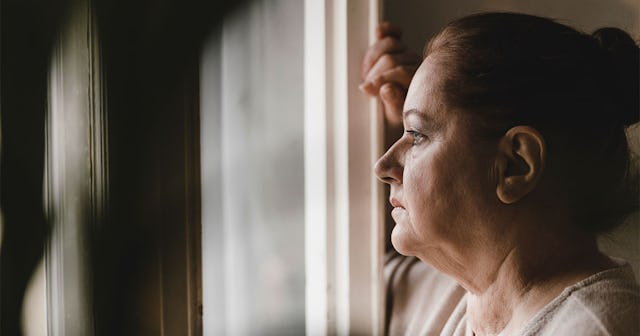Five Things No One Tells You About Losing A Child

Well, let’s be honest… no one actually tells you anything about losing a child. This isn’t a conversation topic you broach at the breakfast table or necessarily a topic to research in advance. As unthinkable as the scenario of losing a child might be, it’s a reality that many people have experienced, myself included. While reactions to grief may vary, the reality of a few key concepts remain consistent.
First, grief is a roller coaster, one even the most adventurous adrenaline junkie would not be tempted to ride. For me, I was in a state of shock for the first six months, plastering on a face of contentment and normalcy, when in reality… I was numb. I’m sure the prescriptions for depression and sleep aids helped perpetuate the feeling of nothingness, but nothingness seemed to be better than complete and utter despair. The reality that the future I imagined would never come to fruition was soul-crushing… but, remember… it’s a roller coaster. You’ll find yourself propelling downward as if there is no bottom… but, over time, the ride starts to level out and the click of the incline is heard.
Second, accepting charity can be arduous. I come from a family whose matriarch taught her children to be independent and self-sufficient. While these traits are what shaped my work ethic and outlook on life, it didn’t serve me well during my immediate time of grief. I assumed that this too was a part of life that I needed to conquer unassisted— find the root cause, create an action plan and execute flawlessly. The reality was, I needed help. From housework, childcare for my other boys, dinner and meaningless errands, I couldn’t do it alone. Once I embraced the idea of leaning on others, accepting the charitable acts of service offered, my despair turned into something more manageable as I witnessed the most generous acts of kindness.
Joaquinne Dela Cruz/EyeEm/Getty
Third, well-wishers mean well, remember that. Countless people stopped by and called to offer support and share their stories of loss in an effort to comfort me and lift my spirits. In reality, more often times than not, I found myself easily agitated by those sharing competing stories of loss and didn’t always have an open mind and heart. But, as I later learned, we all don’t have a certificate in grief counseling and hindsight is indeed 20/20. Those people that took the opportunity to offer support had the best intentions… bless their hearts, and in that moment, it was hard to see through the haze of grief. Giving yourself the grace to be momentarily annoyed can be quite cathartic, but also anticipate this scenario many times over and accept the words of support as they were intended, not necessarily delivered.
Fourth, memories fade, archiving the past becomes a lifeline. As much as I’d like to think my impenetrable brain will hold tight every memory of my son, I can’t even remember what I ate for lunch yesterday. Fortunately, I took millions of pictures, wrote daily on a family blog and saved his most precious possessions in a hope chest. Some people save clothes in sealed containers to keep the smell, some keep rooms untouched. There isn’t a wrong or right way, whatever your method of remembering might be, don’t waiver on this. In time, the depth of your loss won’t be the most prominent feeling, and you’ll find comfort in the memories of the past.
Halfpoint Images/Getty
Fifth, the guilt of joy is imminent. The first time I laughed, I was overcome with a sense of betrayal. How could I find joy when I should be grieving? What was the appropriate time frame when I could stop crying in public? When would I want to return to the land of the living? Guilt was a feeling that I hadn’t anticipated. Not only was I depressed, exhausted, and overwhelmed… I was consumed with guilt during the moments when I was working fervently to change my perspective. Not cool world… not cool at all. Eventually, you’ll come to a place where you acknowledge the guilt you feel, accept that you don’t deserve those negative feelings and become open to the joy that surrounds you.
Life is possible after loss.Love is possible after loss.Joy can be embraced after loss.Today I was reminded by my Outlook calendar that my youngest son passed away 5 years ago. While I continue to spend each day in search of joyful moments to embrace, I would be remiss if I didn’t acknowledge the arduous path that I continuously climb. My list of lessons learned will undoubtedly continue to grow, but so does the opportunity to share my experience with those that have walked a similar path in hopes that it might make theirs a little easier to travel.